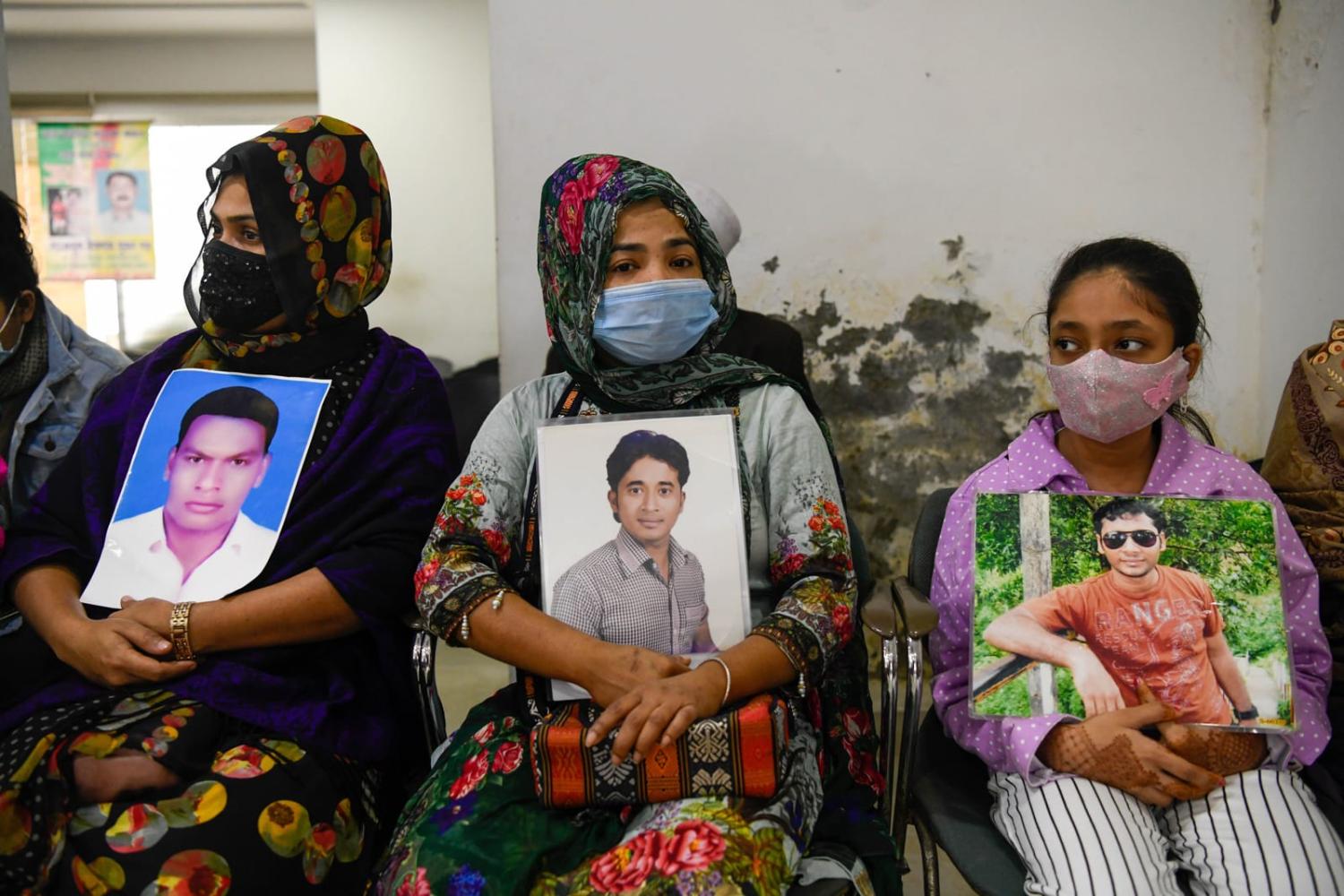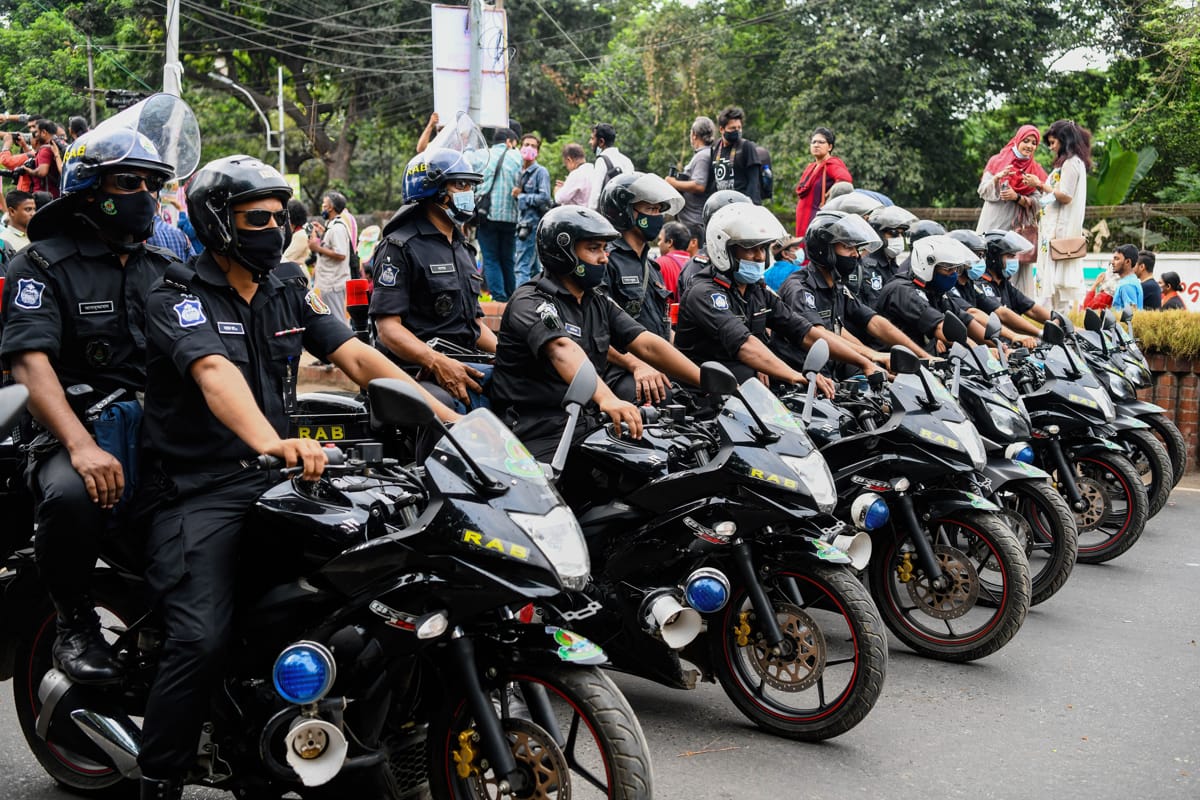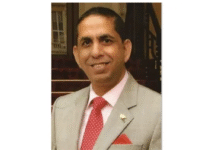Extrajudicial killings and disappearances have dropped
dramatically, with the government aware the world is watching.

Lowy Institute 25 Jauary 2023
On 10 December 2021 – International Human Rights Day – the Biden administration in the United States levied sanctions against the Bangladeshi elite force, the Rapid Action Battalion. The punitive measures, in support of US Global Magnitsky human rights sanctions, targeted six of RAB’s former officials, including current and immediate past heads of the Bangladesh police. The reasoning was explicit and confronting, with the administration’s executive order declaring:
NGOs have alleged that RAB and other Bangladeshi law enforcement are responsible for more than 600 disappearances since 2009, nearly 600 extrajudicial killings since 2018, and torture. Some reports suggest these incidents target opposition party members, journalists, and human rights activists.
The aim of the policy was to place an effective deterrence on the abusive treatment of Bangladeshi citizens by security forces and puncture the effects of “spin dictators”, a term to describe the silencing of critics at home while spearheading an international campaign to highlight economic growth and development potential.
More than a year on, the recently published Human Rights Watch World Report 2023 observed that in Bangladesh, serious state crimes such as extrajudicial killings and enforced disappearances have now dropped dramatically. HRW noted, however, that the authorities have launched a campaign of threats and intimidation against human rights defenders and families of victims of enforced disappearances.
Once described as a flawed Muslim democracy, Bangladesh has spectacularly slid back to autocracy during the past decade. Beyond the allegations listed under the US sanctions statement, other examples include the discovery of a secret prison named Aynaghar (House of Mirrors) in the capital’s military barracks, which was used illegally to forcefully detain disappeared Bangladeshi citizens. Another report found Bangladeshi officials purchased sophisticated spyware from Israeli firms via Cyprus and Singapore.
The 2022 World Press Freedom Index ranked Bangladesh at 162 – worse than Russia (155), Sudan (151) and Venezuela (159). The Global State of Democracy report places Bangladesh in the same category as Myanmar, Afghanistan, China and Cambodia. Freedom House categorised Bangladesh as “partly free”.

Before the US sanctions, the data on extrajudicial killings in Bangladesh made for gruesome reporting. For example, in 2018, 466 people were killed by the security forces, of which 292 were victims of a highly controversial anti-drug drive introduced just prior to the national election. In 2019, 388 Bangladeshis were killed by the state forces; in 2020, 188 people. In 2022, following the US sanctions, 15 extrajudicial killings were reported, with five people forcefully disappeared, whereas in 2018 the number stood at 34.
Bangladesh will again head to the polls for a general election in about 12 months. The last election in 2018, under the current Prime Minister Sheikh Hasina and the ruling Awami League, was criticised as being heavily rigged. Major opposition parties boycotted the previous election held in 2014. Major liberal democracies including the United States and Australia called for a re-election.
But the application of US sanctions, and the prospect they could be extended, has created a new complication for Bangladeshi rulers ahead of the next election.
For one thing, retirement plans could be put in jeopardy. There is a long tradition among influential Bangladeshi civil and military officials to migrate to Western nations after retirement or after a change in government. In Canada, a Toronto suburb has the nickname “Begum para” due to the number of Bangladeshi officials who have purchased luxurious houses there.
Mindful, perhaps, of the international attention, recent opposition protests in Bangladesh demanding an election under a neutral caretaker government have been mostly met with restraint. This is a marked change from the excessive violence used against political opponents ahead of the previous two elections. Hasina’s government now must find an effective and less violent way to deal with opponents – although there is no indication it will bow to demands for a caretaker government to run the election.
The further effect of the US sanctions has been to facilitate the opening of political spaces in Bangladesh. The opposition Bangladesh Nationalist Party (BNP) has been holding massive countrywide rallies for the past few months, displaying its popular base – a level of support often underestimated by external observers. Hundreds of thousands of people have attended, despite the past record of police arrests and intimidation.
Whether the government has taken to heart the message of the sanctions remains to be seen. A recently leaked official letter signed by the Foreign Secretary expressed wariness that further sanctions may be imposed and “the ambassadors should take pre-emptive measures when necessary to block such attempts”.
But the recent developments in Bangladesh have shown that targeted human rights sanctions work as an effective foreign policy tool to dial back gross human rights violations. This has helped because local elites remain fascinated by the West – investing in property and concerned about being ostracised. The United States has leveraged this pressure point well, and, in Bangladesh’s case, helped improve the human rights situation in the country.









